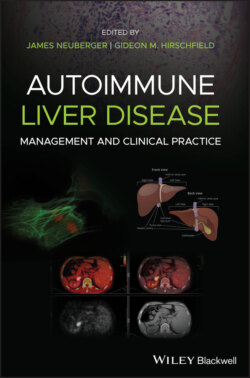Читать книгу Autoimmune Liver Disease - Группа авторов - Страница 68
Role of the Microbiome
ОглавлениеThe gut microbiome has been implicated in autoimmunity (Figure 2.1) [20]. The gut microbiota change dynamically under the influence of aging, sex hormones, diet, water purity, hygiene, sanitation, pollution, exposure to pathogens, use of antibiotics, and the integrity of the gut–blood barrier. Gut microbiota are composed of commensal bacteria, fungi and viruses, as well as potentially pathogenic bacteria and fungi. In addition, the microbiota process food, xenobiotic pollutants and drugs to generate micronutrients and metabolites. Intestinal immune responses and the leakiness of the mucosa dictate the types and concentrations of PAMPs, DAMPs, cytokines, microbes, and food antigens entering the portal vein for processing in the liver. PAMPs and DAMPs stimulate enterocyte inflammasomes leading to secretion of proinflammatory cytokines. As discussed earlier, bacterial metabolites of vitamin B are the activating antigens for MAIT cells. Thus, the gut microbiome and intestinal immune responses appear to influence systemic immunity, and risk for autoimmunity, through the innate and adaptive immune responses of the liver.
Altered composition of the gut microbiota, referred to as “dysbiosis,” has been reported in autoimmune diseases, including AILDs. Whether dysbiosis is the cause or the effect of autoimmunity remains a key unresolved issue. Female sex hormones can also alter the gut microbiome, which may contribute to the female predilection in autoimmunity. If an altered gut microbiota or increased gut permeability were causally related to autoimmune diseases, then restoration of a normal microbiota and mucosal integrity could be therapeutic.
